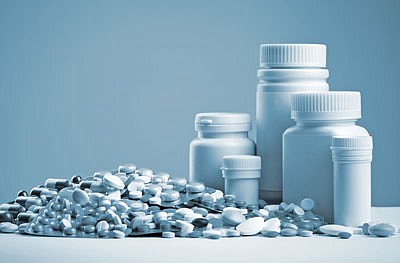This article is part of the #STCPreventionMatters campaign from the R Adams Cowley Shock Trauma Center, University of Maryland. For more information about the campaign and the Center for Injury Prevention and Policy, visit: www.umm.edu/PreventionMatters.
Each new-year, many of us make a list of promises and resolutions to make changes to live longer, healthier lives. However, in 2018, the Centers for Disease Control and Prevention reported that people in the United States are not living as long as they used to. They said that one reason for this is the result of young people dying after taking too many opioids.
We see this problem right here in Baltimore: more than 700 Baltimore residents died in 2018 after taking too many opioids. The Maryland State Chief Medical Examiner’s Office and the Baltimore Health Department suggest that 19 out of every 20 overdose, deaths were caused by fentanyl, a lab-made pain killer that is often mixed with heroin. Sometimes, fentanyl is even passed off as heroin.
When people die after taking too many opioids, it is just the end-point of a wider range of illnesses like uncontrolled pain or depression. People become addicted for many reasons, and many people want to stop using but don’t know how. That means that nearly, every person reading this article knows someone, or may themselves be having trouble with opioid use. So, in the spirit of making resolutions, we should resolve to help ourselves and our neighbors make healthier choices by doing the following:
If you are worried that someone may be misusing opioids, encourage them to get help. The University of Maryland Medical Center’s Downtown and Midtown campuses were recognized by Mayor Catherine Pugh and the Baltimore City Health Department as providing the best level of care for those that need help with substance abuse. Both campuses have peer counselors that can connect patients to substance abuse programs directly from the emergency department, often within hours. If you or a loved one is having problems with opioid abuse, think about bringing them to one of the emergency departments to be checked out and treated.
-Carry naloxone, the drug that can undo the effects of opioid overdose. You do not need a doctor’s prescription to buy or carry naloxone. The pharmacists at the drug store will teach you how and when to give naloxone. Remember to call 911 after you give the naloxone. Many patients who abuse opioids, are saved every year by a family member or passerby that gave them naloxone.
-Throw away old medications. This means all old medications, and it is even more important for opioids. Experts say that a number of people with opioid use disorders started by using prescription drugs the wrong way. Get rid of this danger by throwing out all old medications from your cabinets. Your local drug store can help you get rid of the drugs safely. Do not flush the pills down the toilet since this can hurt animals and other wildlife.
The problem of opioids has affected all of us in one-way or another. Let us all promise to use that connection to save a life in the coming year.
Zachary Dezman, MD, MS, MS, Assistant Professor at the University of Maryland School of Medicine in the Departments of Emergency Medicine and Epidemiology. He works as an Attending Physician at the University of Maryland Medical Center Midtown Campus where he also serves as Vice Chair of their Research Committee. Dr. Dezman is Deputy Director of the Clinical and Translational Research Informatics Center at the University of Maryland, Baltimore.
